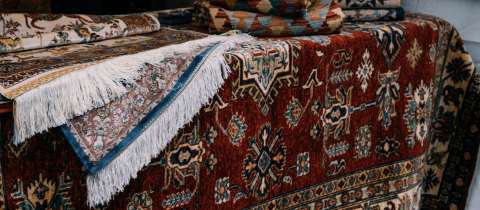O sleep! O gentle sleep!
Nature’s soft nurse, how have I frightened thee, That thou no more wilt weigh my eyelids down And steep my senses in forgetfulness?
That of course is Shakespeare. Henry IV. Not one of the bard’s most familiar plays, but most of us are familiar with insomnia. There are soothing teas, dietary regimes, over-the-counter medications and of course prescription drugs that promise to lull us to sleep. But coffee? Yes, coffee, at least according to the marketing claims for cleverly named “Counting Sheep Coffee.” How can coffee possibly be sold as a sleep inducer, given its caffeine content? Well, first you remove the caffeine, which is not difficult. Then you add some valerian root extract and explain that it is a herbal sedative with a long history of use. You can drop a few names like Hippocrates or Galen, ancient physicians who supposedly prescribed valerian for insomnia. You can even throw in that during World War II it was used in England to relieve the stress of air raids. Then you come up with a cute logo, like a sheep asleep on a quarter moon. What you don’t do is organize a proper randomized double-blind trial to test whether the coffee really helps with insomnia. You don’t do it because if the results turn out to be unfavourable, you’ve compromised your business and that’s a recipe for insomnia. As long as you just play up the notion that some studies have shown a benefit for valerian root and stay silent about whether the amount present in your coffee is meaningful in terms of these studies, you’ll have a good chance at snaring insomniacs to give it a shot. You’ll make money and sleep well.
Whether the customers will sleep well is a different question. There are two fundamental questions here. Is there conclusive evidence that valerian can help with sleep disorders, and do we know how much valerian root is present in a cup of “Counting Sheep Coffee?” The answer to both those questions is no. There have been at least eleven randomized, placebo-controlled, double-blind trials of valerian. Some showed some shortening of the time needed to fall asleep, others didn’t. In general the studies had small sample sizes, used different sources and amounts of valerian and had high withdrawal rates. Like any natural product, valerian root is composed of numerous compounds including alkaloids, iridoids, sesquiterpenes, flavanones and gamma aminobutanoic acid, or GABA. Different valerian plants, harvested at different times, may have varying amounts of these and different extraction processes, whether using water or alcohol, will yield different products. Some preparations are standardized in terms of valeric or valerenic acids, but whether these are the active ingredients is unclear. GABA is an “inhibitory neurotransmitter” and is known to cause sedation but whether it can cross the blood-brain barrier after being ingested in not known.
Valerenic acid inhibits an enzyme that destroys GABA and may contribute to valerian’s; sedative effect. There is also the issue of possible additive sedative effects with alcohol or sedatives such as the barbiturates and benzodiazepines. It is unlikely that Counting Sheep Coffee has enough valerian to cause any such problems. It might have enough, though, to attract cats. Valerian contains actinidine, a compound that can drive cats into a frenzy. It may also be an attractive scent for rats. Some accounts of the Pied Piper of Hamelin suggest he used not only music but valerian in his pockets to rid the town of rats.







